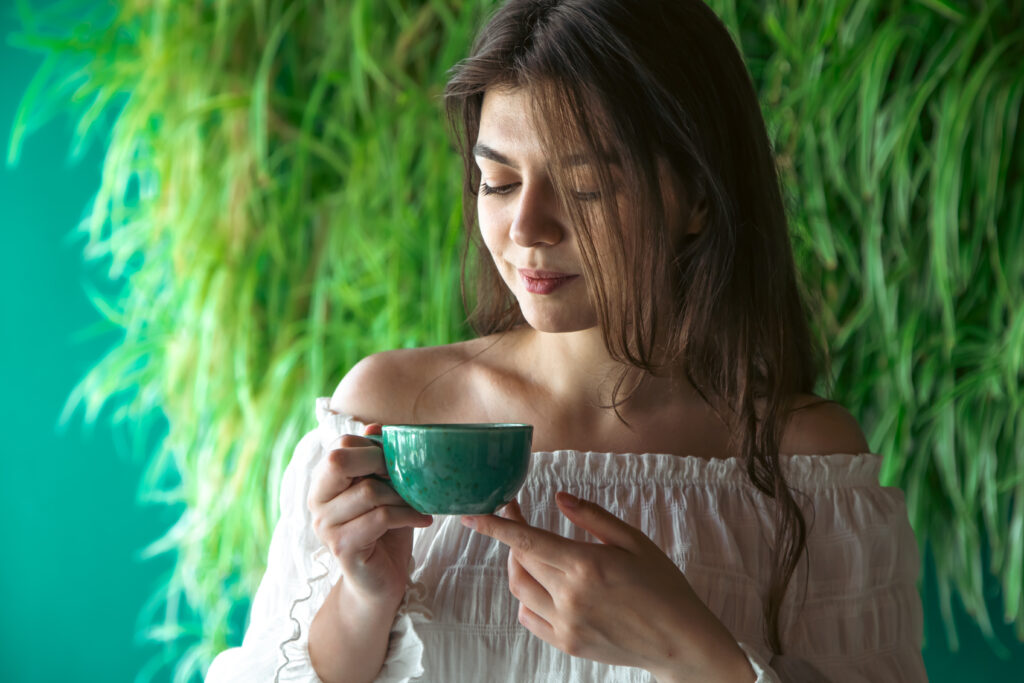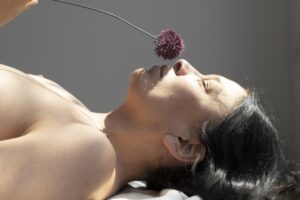Boost Fertility Naturally – Women’s Tea for Hormonal Balance & Pregnancy Support

fertility tea for women
Women’s reproductive health is closely intertwined with nutrition, lifestyle, and hormonal balance. In today’s fast-paced world, many women face challenges such as stress, hormonal imbalances, irregular menstrual cycles, and exposure to environmental toxins, all of which can affect fertility. As a result, natural remedies and holistic approaches to reproductive wellness are gaining popularity. Among these, fertility tea for women has emerged as a gentle, effective, and holistic solution for those seeking to support reproductive health naturally. Fertility tea blends a variety of organic herbs that nourish the reproductive system, enhance hormonal balance, and promote overall vitality.
Alongside fertility teas, detox teas during pregnancy are also recognized as a beneficial, safe option for gentle cleansing, improved digestion, and maintaining energy levels. While traditional detox products can be harsh and unsuitable during pregnancy, specially formulated herbal detox teas can support the body’s natural processes safely. When integrated into a balanced lifestyle, these herbal teas offer women both physical and emotional support, helping them prepare their bodies for conception and maintain wellness throughout preconception and pregnancy.
What Is Fertility Tea for Women?
Fertility tea for women is an herbal infusion crafted with ingredients known to promote reproductive health, regulate hormones, and strengthen the uterus. The tea is typically made from herbs such as red raspberry leaf, nettle, chasteberry, spearmint, ginger, chamomile, and lemon balm. Each of these herbs is selected for its ability to support reproductive function and overall wellness. Red raspberry leaf, for example, is celebrated for its uterine-toning properties and its ability to support healthy menstrual cycles.
Nettle leaf is rich in essential nutrients such as iron, calcium, and magnesium, which help nourish the body and support hormonal balance. Chasteberry, also known as Vitex, is a well-known herb for regulating menstrual cycles and supporting ovulation. Peppermint and spearmint provide digestive relief and have a calming effect on the nervous system, while chamomile and lemon balm help reduce stress and promote emotional well-being.
Together, these herbs create a tea that nourishes the reproductive system, improves blood circulation to the uterus and ovaries, and prepares the body for conception. Fertility tea can be a supportive addition for women experiencing mild hormonal imbalances, irregular cycles, or stress-related fertility challenges. Beyond its reproductive benefits, fertility tea is also known for its antioxidant content, which can help reduce oxidative stress—a common factor that can affect egg quality and overall reproductive health.
How Fertility Tea Supports Hormonal Balance and Reproductive Health
Hormonal balance is essential for fertility, and many women struggle with irregular cycles, ovulation issues, or symptoms related to conditions such as polycystic ovary syndrome (PCOS). Fertility tea for women works by supporting the endocrine system, helping regulate estrogen and progesterone levels, and stabilizing menstrual cycles. Herbs such as chasteberry are particularly effective in supporting progesterone production, which is crucial for ovulation and implantation. By promoting a more balanced hormonal environment, fertility tea can enhance the likelihood of successful conception naturally.
In addition to hormonal regulation, fertility tea improves blood flow to the reproductive organs, ensuring the uterus and ovaries receive essential nutrients and oxygen. Improved circulation can strengthen the uterine lining, which is critical for implantation and maintaining early pregnancy. Many women also report enhanced energy levels, reduced fatigue, and improved overall well-being after regularly consuming fertility tea. The combination of physical nourishment and emotional calmness makes fertility tea a holistic approach to reproductive wellness.
Emotional and Mental Benefits of Fertility Tea
Fertility is not only a physical process but also an emotional journey. Stress, anxiety, and mental fatigue can significantly impact hormonal balance and ovulation. Fertility tea often contains calming herbs such as chamomile, lemon balm, and peppermint, which help reduce stress levels, promote relaxation, and support emotional stability. Drinking fertility tea can become a daily ritual that encourages mindfulness, self-care, and emotional well-being. For women struggling with the emotional challenges of fertility, the soothing effects of herbal tea can provide much-needed comfort and mental support.
Detox Tea During Pregnancy – Gentle Support for Wellness
While fertility teas are primarily consumed during pre-conception, detox teas during pregnancy can play a complementary role in supporting overall wellness. It is essential to choose mild and pregnancy-safe detox teas, as strong laxatives or stimulants can be harmful to both the mother and the developing baby. Gentle herbal detox teas are formulated to promote liver function, improve digestion, reduce bloating, and support natural detoxification without causing harm.
Pregnancy-safe detox teas may help reduce water retention, enhance nutrient absorption, and support a balanced hormonal environment. They are designed to provide gentle cleansing, improving energy levels and overall vitality. Herbs such as ginger, peppermint, and lemon balm are commonly included in pregnancy detox blends for their soothing, anti-inflammatory, and digestive benefits. However, it is always recommended to consult a healthcare provider before including any detox tea in a pregnancy regimen to ensure safety and effectiveness.
Safe Herbal Ingredients for Fertility and Detox
When selecting fertility or detox teas, women should prioritize organic, chemical-free herbs known for their safety and efficacy. Red raspberry leaf is excellent for uterine health and menstrual support, while nettle leaf provides essential nutrients for hormonal and bone health. Ginger root helps with digestion, circulation, and nausea, and peppermint provides soothing relief for bloating and digestive discomfort. Lemon balm promotes calmness and emotional balance, making it an ideal addition for stress management. Chamomile is another beneficial ingredient that offers anti-inflammatory effects and improves sleep quality. Selecting teas with these herbs ensures that women receive maximum benefits without risk.
How to Incorporate Fertility Tea into Daily Life
To achieve the best results from fertility tea, consistency and mindful use are crucial. Drinking one to two cups daily, preferably in the morning or evening, allows the body to absorb the beneficial nutrients and herbal compounds. Using fresh, filtered water and steeping the tea for 5–7 minutes ensures optimal extraction of nutrients. Avoid adding refined sugar, as it can interfere with hormonal balance, and instead use natural sweeteners such as honey or jaggery. Fertility tea works best when combined with a balanced diet, adequate hydration, and moderate physical activity. Making tea consumption a calm and mindful ritual can also enhance emotional well-being, creating a holistic approach to reproductive health.
Lifestyle Habits to Complement Fertility and Detox Support
Fertility tea and detox tea provide herbal support, but long-term reproductive wellness is also influenced by lifestyle choices. A balanced diet rich in leafy greens, whole grains, lean proteins, and omega-3 fatty acids nourishes the body and supports hormonal health. Engaging in regular physical activity such as yoga, walking, or Pilates improves circulation, reduces stress, and promotes hormonal balance. Practicing mindfulness, meditation, and deep breathing exercises can further reduce stress levels and support emotional stability. Adequate sleep is also critical, as poor sleep can negatively impact reproductive hormones. Women should also avoid smoking, alcohol, and excess caffeine, as these substances can affect fertility and overall health. By integrating these habits with herbal teas, women can optimize reproductive potential and overall well-being.
Scientific Insights on Fertility Herbs
Several herbs commonly used in fertility teas have been studied for their effects on reproductive health. Red raspberry leaf is traditionally used to tone the uterus and improve menstrual health, and some studies suggest it may also support early pregnancy. Chasteberry (Vitex) has been researched for its ability to regulate menstrual cycles and support ovulation by influencing the pituitary gland’s hormonal signals. Nettle leaf provides essential minerals that support hormonal function and overall reproductive health. Peppermint and chamomile have mild anti-inflammatory and calming properties, which can reduce stress and support mental wellness. Combining these herbs in a balanced fertility tea provides women with natural and gentle reproductive support backed by traditional wisdom and modern research.
Conclusion
Fertility tea for women offers a natural, gentle, and effective approach to supporting reproductive health and preparing the body for conception. Its combination of antioxidant-rich herbs, uterine tonics, and calming ingredients makes it a holistic solution that addresses both physical and emotional wellness.
Detox tea during pregnancy, when chosen carefully, complements this approach by promoting gentle cleansing, supporting digestion, and maintaining energy levels. Women are encouraged to choose organic, chemical-free, and caffeine-free herbal teas and consult a healthcare professional before incorporating them into their routine.
By combining herbal tea consumption with a balanced diet, mindful practices, regular exercise, and adequate rest, women can create an environment that supports fertility, hormonal balance, and overall wellness. These practices not only enhance reproductive potential but also promote a sense of inner calm, energy, and vitality, helping women navigate their fertility and pregnancy journey with confidence and care.
FAQs
Q1. Can I drink fertility tea during pregnancy?
Fertility teas are intended for pre-conception use. During pregnancy, it is best to switch to mild, pregnancy-safe herbal teas after consulting a healthcare provider.
Q2. Is detox tea safe during pregnancy?
Only gentle, caffeine-free, and laxative-free detox teas are safe during pregnancy. Consultation with a healthcare professional is recommended before use.
Q3. How long should I drink fertility tea before trying to conceive?
Most women experience benefits after 1–3 months of consistent use, depending on their individual cycle and health.
Q4. What is the best time to drink fertility tea?
Morning and evening are optimal, preferably on an empty stomach or after light meals for better absorption.
Q5. Can I combine fertility tea and detox tea together?
It is advisable to alternate them or seek professional guidance to ensure safety and effectiveness.
Q6. Are fertility teas suitable for all women?
Fertility teas are generally safe, but women with specific medical conditions or allergies should consult a doctor before use.
Q7. Can men benefit from herbal teas for fertility?
Yes, certain herbal teas can improve male reproductive health by enhancing sperm quality, circulation, and antioxidant protection.






